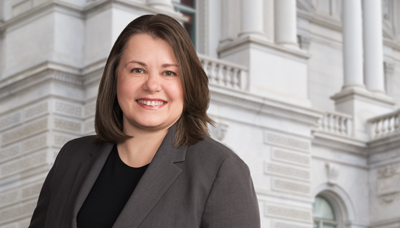As reported in the Washington Post, “the latest move in the White House’s year-long effort to pressure Congress” to enact a federal law requiring paid sick leave for all private sector employees came with the issuance of an Executive Order on September 7. Significantly, the Executive Order contains a broader definition of “paid sick leave” than employers customarily have provided.
Under the Executive Order, paid sick leave includes not only absences due to physical or mental illness, injury or medical condition, but also absences for:
- Preventative care;
- Leave to care for a child, parent, spouse, domestic partner, or “any other individual whose close association is the equivalent of a family relationship;”
- Leave to obtain relief or treatment for domestic violence, sexual assault or stalking, including not only counseling but also the process of seeking legal redress as a victim or to assist any victim of such actions.
In other words, for federal contractors, paid sick leave will include absences for these essentially non-sickness occasions in addition to medical treatment or illness absences traditionally covered by paid sick leave benefits. Usage of “paid sick leave” by employees will likely increase under this broad definition.
For example, paid sick leave typically does not include preventative care. Additionally, the use of paid sick leave for family care leave that parallels the unpaid leave granted by the Family and Medical Leave Act will encourage employees to use paid sick leave instead of FMLA leave for family care. The inclusion of individuals with “close association” equivalent to a “family relationship” is broader than granted for unpaid FMLA leave. Finally, using sick leave for seeking redress for domestic violence or sexual assault is a new concept.
Although the issuance of this Executive Order has been widely reported, media coverage of this development has not included the potential implications of the very broad definition of “paid sick leave” mandated for federal contractors.
According to the Bureau of Labor Statistics, 61 percent of workers in private industry and 90 percent of state and local government workers already have paid sick leave benefits, USDL 15-1432 News Release, July 24, 2015. Under a prior Executive Order, all federal employees have sick leave benefits. Nevertheless, the Executive Order directs that all new federal procurement contracts contain a clause specifying that employees whom perform work under a federal contract or subcontract shall earn not less than 1 hour of paid sick leave for every 30 hours worked. Unused sick leave earned under the Executive Order cannot be lost and must be carried over year to year, as well as reinstated for any rehired employees.
Executive Branch has pushed Congress for both broader availability and accumulation of sick leave. Now this effort includes a significantly expanded definition of sick leave in the private sector, since employers who have federal contracts may find it difficult to maintain different sick leave policies for workers not involved in performance of federal contracts.
The Executive Order directs the Department of Labor to issue implementing regulations by September 30, 2016. The order will apply to all contracts awarded on or after January 1, 2017.
For more information, please contact the Barnes & Thornburg Labor and Employment attorney with whom you work, or a leader of the firm’s Labor and Employment Department in the following offices:
Kenneth J. Yerkes
Department Chair
(317) 231-7513
John T.L. Koenig
Atlanta
(404) 264-4018
David B. Ritter
Chicago
(312) 214-4862
William A. Nolan
Columbus
(614) 628-1401
Mark S. Kittaka
Fort Wayne
(260) 425-4616
Robert W. Sikkel
Grand Rapids
616-742-3978
Peter A. Morse
Indianapolis
(317) 231-7794
Scott J. Witlin
Los Angeles
(310) 284-3777
Teresa L. Jakubowski
Washington, D.C.
(202) 371-6366
Janilyn Brouwer Daub
South Bend/Elkhart
(574) 237-1130
Visit us online at www.btlaw.com, @BTLawLE, and @BTLawNews, and don’t forget to bookmark our Labor & Employment blogs www.btlaborelations.com and www.btcurrents.com.
© 2015 Barnes & Thornburg LLP. All Rights Reserved. This page, and all information on it, is proprietary and the property of Barnes & Thornburg LLP. It may not be reproduced, in any form, without the express written consent of Barnes & Thornburg LLP.
This Barnes & Thornburg LLP publication should not be construed as legal advice or legal opinion on any specific facts or circumstances. The contents are intended for general informational purposes only, and you are urged to consult your own lawyer on any specific legal questions you may have concerning your situation.





















